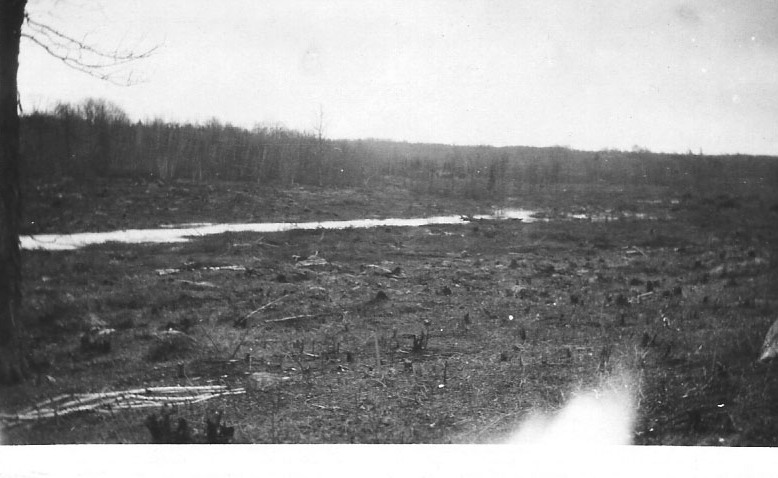

Share this.




View of Cheney Hollow before it was flooded to form Andover Lake - Scott Yeomans
Constructed in the early 20th century, Andover Lake is a man-made recreation area. While residents of Andover and other nearby towns enjoy swimming and boating on the property’s 159 acres, few may appreciate the role the lake played in challenging racial boundaries during the Civil Rights Era.
In 1926, after years of research and planning, contractors began clearing trees and brush out of Cheney Hollow to make way for the construction of a lake. At 3:30 pm on April 30, 1927, a sluiceway gate in a nearby dam closed and water began filling what soon would become Andover Lake. Charles White and 10 other initial investors watched with pride during the following decades as the little section of Andover became a prosperous resort area.
In 1955, William M. Philpot, an African American minister at the New Haven Baptist church, bought a cottage on the lake. Despite buying what his attorney, George J. Ritter, described as an “implied easement” for access to the lake upon purchase of the home, Philpot encountered resistance as the Andover Lake Property Owners Association (ALPOA) repeatedly denied him access to the lake by refusing him membership in the owners’ association.
After years of effort put forth by Ritter and Philpot, the State Civil Rights Commission stepped in on Philpot’s behalf, reporting the situation to Governor John Dempsey as an act of racial prejudice. Philpot claimed that bias on the part of the lake association members kept African American and Jewish residents from accessing the lake. The Andover Lake Property Owners Association claimed it had the right to selective membership and denied any wrongdoing.
Philpot took his protest a step further when he threatened the association with “wade-in” protests. ALPOA responded by taking Philpot to court in 1964 to stop the protests. In 1967, after 12 years and 3 membership application denials, Philpot and Ritter won their case. State Superior Court Judge Samuel Googel ruled that Philpot and his wife acquired a right of way to the water when they purchased their home. After this ruling, ALPOA conceded and the legal battle ended.
Today, private residents still own Andover Lake but welcome new members of all races and faiths residing in Andover and other nearby towns. The lake remains ringed by houses occupied year-round and affords members opportunities for boating, fishing, swimming, and other recreational activities.